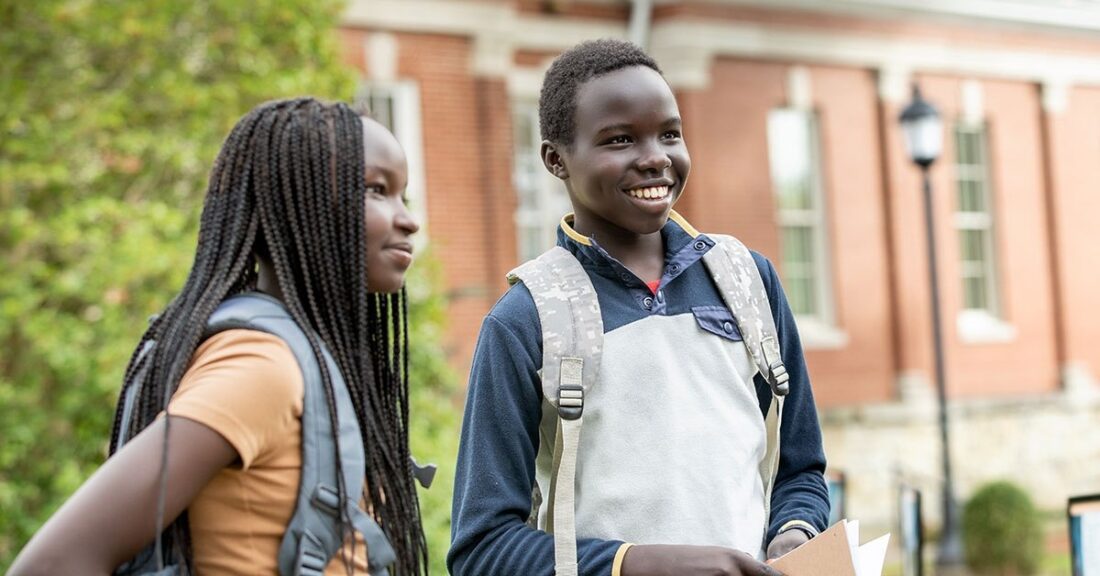Maryland Enacts Sweeping Youth Justice Reforms

Maryland lawmakers have passed a series of wide-ranging reforms that aim to position young people with justice-system involvement for long-term success.
The reforms, which started to take hold on June 1, 2022, include:
- Raising the minimum age of juvenile court jurisdiction to 13, except for children ages 10 to 12 alleged to have committed the most serious violent offenses.
- Prohibiting the use of secure detention or commitment to the Department of Juvenile Services for technical violations of probation and misdemeanor offenses (apart from handgun violations and repeated misdemeanor offenses).
- Removing barriers to diversion, including allowing youth with nonviolent felonies to be diverted without prosecutor approval. This change recognizes research that indicates most young people who break the law can be held accountable by their families and communities and be connected to effective resources — such as counselors, mentors and athletic coaches — who can help them learn from their mistakes.
- Placing developmentally appropriate time limits on probation to ensure better outcomes for youth.
Justice Reforms Recommended by an Expert Panel
The measures in the juvenile justice reform law are consistent with policies proposed by the state’s Juvenile Justice Reform Council, which the legislature established in 2019. Members of the council included representatives from the state Senate and House of Delegates, government agency leaders, a prosecutor, public defender, juvenile court judge, advocates and researchers. This group explored how to set young people up for long-term success when they came into conflict with the law while also reducing recidivism and increasing public safety.
“This legislation protects both public safety and the sanctity of childhood,” says Sam Abed, secretary of Maryland’s Department of Juvenile Services. It kicks off reforms that, according to Abed, address “some of the longstanding challenges that have plagued our system for decades — namely over-reliance on incarceration, significant racial and ethnic disparities and not having a statutory minimum age of jurisdiction.”
“These new rules are rooted in research and best practices,” adds Nate Balis, who served on the reform council and directs the Casey Foundation’s Juvenile Justice Strategy Group. “The legislature deserves a lot of credit for establishing policies that not only reduce the use of harmful confinement, but also emphasize the need to better support young people in the community outside of the formal system.”
The New Maryland Juvenile Justice Laws
The new reforms will help reduce the number of young people subjected to juvenile court and improve the experiences of young people who continue to be prosecuted. Prior to these changes, Maryland had no set minimum age for prosecuting young people. In 2020, for example, the state prosecuted 376 children under the age of 13 — and more than 70% these children were Black. The year also saw over 1,000 additional arrests of children under the age of 13 who were not prosecuted. Under the new law, 90% of these cases would have spared the children involved from being arrested.
For youth 13 and older, the new law provides the state’s juvenile justice agency greater discretion in choosing diversion — a change that aligns with data indicating that youth who participate in diversion programs are less likely to reoffend than their peers who are not diverted. For example: Department of Juvenile Services staff will no longer need the local state’s attorney approval to divert youth charged with non-violent felonies, such as breaking and entering. The new law also establishes a pathway for the court to return a case to the Department of Juvenile Services intake for assessment and services rather than prosecution.
For young people adjudicated and placed on probation, the new reforms restrict the length of probation sentences based on offense, with maximum initial terms of six months for misdemeanors and 12 months for felonies. The court can extend probation sentences in three-month increments — up to a year total for misdemeanor offenses, two years for felony offenses and until a youth turns 21 for crimes of violence.
The law also prohibits the use of confinement — both in detention and incarceration — for violations of probation and misdemeanors other than firearm offenses. This impact of this shift is significant: In 2021, more than 40% of youth were removed from their homes for misdemeanor offenses like shoplifting, simple assault or disturbing public order.
Protecting Young People Before Interrogation
The evolution of Maryland’s juvenile justice system isn’t over just yet. Youth are particularly susceptible to giving false confessions when they are interrogated by law enforcement, according to James Dold, chief executive officer of Human Rights for Kids. Thankfully, on October 1, 2022, the state is poised to enact laws that will reduce the likelihood of young people being interrogated by law enforcement without their parents, guardians or attorney present.
This change will require law enforcement officials to make good-faith efforts to notify a child’s parents or legal guardians before interrogating them. The notice must include the child’s location, why the child was taken into custody and how the guardian could make immediate, in-person contact with the child. Other aspects of the legislation require a child to consult with an attorney prior to being interrogated and encourage Maryland courts to adopt age-appropriate language so that the children involved can better understand their options and rights.
Considered together, these changes form a monumental step in the right direction for kids and families across the state. “The legislation passed this year in Maryland is the best in the nation when it comes to protecting the due process rights of children at the point of arrest as well as establishing a minimum age for delinquency that is in line with international human rights norms,” says Dold.
Supreme Court Decision Affirms Justice Systems Must Treat Youth Differently
Prosecution of Young People as Adults Defies the Spirit of the Supreme Court Ruling





